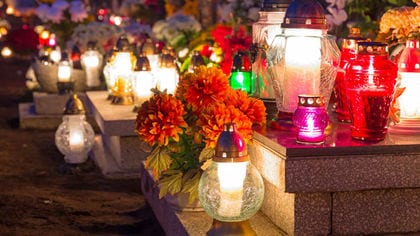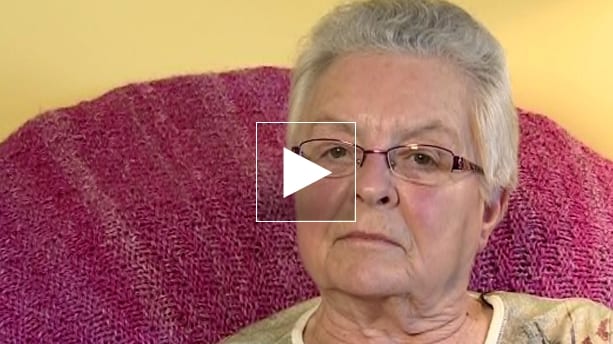
7 tips for the executor of an estate
Author: Judy Martel
Source: Bankrate.com
Acting as executor of an estate (also called “personal representative” in some states) doesn’t have to be an overwhelming task if you’re organized.
As the chief administrator, so to speak, the executor is legally responsible for protecting the assets of the decedent, or deceased, until the probate process is completed and the assets are disbursed.
Acting in good faith won’t get you in trouble if the assets in the estate drop in value (with investments, for example), but you could be found liable if you allow assets to be tampered with before the probate process is complete or you sell off assets at fire-sale prices to raise cash.
So it’s important to know that if you are unable or unwilling to serve as executor, you can refuse, and the contingent executor will step in, or the court will name a new one.
Click here to read full article
Click here to make sure your Executor is Prepared and Organized
Canadians have billions in unclaimed money. Here’s how to find out if you’re one of them
Experts estimate unclaimed assets across the country could top $4 billion to $7 billion, and the amount is growing.
Article Source: The Star Business
Author: Ross Marowits The Canadian Press, Published on Fri Jul 04 2014
![]() Click here to download article
Click here to download article

The Bank of Canada’s unclaimed accounts alone grew 52 per cent over five years to reach $532 million. Searches conducted by the reporter during research for this story identified more than $10,000 of unclaimed financial assets for family and friends.
MONTREAL—Millions of Canadians unknowingly have billions of dollars worth of their money and assets being held by companies and government agencies, available for recovery.
The Bank of Canada alone is holding nearly $1 billion from bank accounts and Canada Savings Bonds, but experts estimate unclaimed assets across the country could top $4 billion to $7 billion.
Canada is way behind other developed countries in having comprehensive unclaimed property legislation for all its residents, says accountant Brenda Potter Phelan.
“A country so progressive, so socially minded as Canada I find it hard to stomach that we don’t have some safeguards. In the U.S. and around the world they find this a main part of consumer protection,” she said from Cambridge, Ont., where she runs a website and blog called Legacy Tracker.
Quebec and Alberta are the only provinces with comprehensive laws, while British Columbia has a voluntary system. But Ontario is studying the adoption of its own system that could shine the light on a large treasure of unclaimed assets, including insurance policies, stocks and pensions.
In Canada, the total value of unclaimed assets is unknown but experts believe the numbers are staggering and growing.
The Bank of Canada’s unclaimed accounts grew 52 per cent over five years to reach $532 million as of December, with 93 per cent of accounts worth less than $1,000. The bank returned only $14 million to owners last year.
Non-redeemed Canada Savings Bonds and Canada Premium Bonds totalled $391 million as of March 31. The Office of the Superintendent of Bankruptcy Canada holds some $18 million.
Quebec has about $300 million of unclaimed financial and other assets, while B.C. and Alberta have tens of millions each.
Online searches can be conducted in each of those provinces and with the Office of Superintendent of Bankruptcy, but all Canadians can look at the Bank of Canada website.
Searches conducted during research for this story identified more than $10,000 of unclaimed financial assets for family and friends.
“I am very surprised,” Syma Shaffer said when told about the discovery of nearly $1,400 from a Montreal bank account closed in 1991.
Federally regulated banks are required to hand over unclaimed deposit accounts, term deposits & GICs and negotiable items such as drafts, money orders and certified cheques to the central bank after a decade of trying to notify the owner.
Excluded are non-Canadian currency accounts, RRSPs, credit union balances, gold or silver certificates, safety deposit boxes, insurance payments, court payments, stocks and dividends, wages and real estate deposits, most of which are covered by provincial legislation.
The largest single unclaimed account totalling $552,000 was transferred from a Royal Bank branch in Montreal. Its owner, Manuel Vinhas, had two dormant accounts worth nearly $677,000.
The bank wouldn’t comment on specific cases, citing privacy issues.
Greg Crone was elated when informed he had more than $6,600 of assets being held, likely from a deposit related to a 2003 car purchase.
But the Ontario resident couldn’t understand how RBC was unable to locate him after a move to another city since he has the same bank account.
“It’s pretty shocking. When they want to find you because you’re late on a payment or something they have no trouble finding you,” he said in an interview.
Experts say it’s not uncommon for people to lose track of their assets, forgetting old bank accounts or paid up life insurance policies. People often move without forwarding their mail for more than a year and many people die without their heirs knowing much about their finances.
“Some people live quite private lives and they die unexpectedly and people don’t even know to look,” said Darren Jack, chairman of a task force for the Unclaimed Property Professionals Organization.
Executors Beware – it’s not an easy job – We can help
Article by: NOREEN RASBACH
Published in: The Globe and Mail
Published on: Wednesday, Aug. 15, 2012
This is a fantastic article that explains some of the things involved and the potential difficulty in becoming or being appointed as an executor.
Keep in mind, Executor Made Easy can help!
Below is the introduction to the article by Noreen Rasbach:
When the time comes, however, experts say that sentiment will be tempered by the task at hand – a pile of work.
Not only will administering the estate take at least a year – more likely 18 to 24 months or longer if the estate is particularly complex – but the work will be done during a period of emotional turmoil – both in grieving for the deceased and in navigating family tensions over how the estate is divided.
Chester, the cat. An increasing number of Canadians want to make provisions for their pets just as they would for any other loved one, says Saman Jaffery, a Toronto lawyer.
On top of that, experts say, executors are financially liable for their mistakes and are increasingly being held to account both by beneficiaries and by the courts.
The executor’s job is to gather up all the assets that the deceased owned, pay off his/her debts and ultimately distribute what’s left in the proportions as set out in the will, says Leanne Kaufman, the Toronto-based vice-president of the Professional Practice Group at RBC Management and author of The Executor’s Handbook.
Click here to read full article…
Dying in a digital world means life after death
Article by: Joanne Richard
Article Online Source: The Toronto Sun
Posted: Friday, October 30, 2015

(Fotolia) Original Photo from Article Source: http://www.torontosun.com/2015/10/28/dying-in-a-digital-world-means-life-after-death Following the memorial service or with the deceased? Smiling or looking mournful?
Following the memorial service or with the deceased? Smiling or looking mournful?
Snapping funeral selfies is alive and well, even though it’s a hotly debated topic and considered sacrilege by some.
Actually one in five millennials are super chill with funeral selfies, reports a U.S. study by Lustre Premium White, a maker of teeth-whitening products.
Here in Canada, put that phone down, say 84% of Canadians polled. Only 5% think it’s an acceptable practice, reports Arbor Memorial, a Toronto-based funeral service centre. “But, increasingly, as selfies become an accepted way we express ourselves in society, they may become more common at funerals as well,” says Brian Snowdon, president of Arbor.
From funeral selfies on Facebook, twitter and Instagram, and funeral hashtags, to social memorial pages, uploaded video tributes, livestreaming and blogs, popular platforms are the new mourning rituals for those craving connection and meaning.
Merging digital and death is changing the face of the funeral industry, not only with social media postings but there’s more transparency to the industry, lifting the veil on the mystery and prices.
Plus the internet means you never ever have to see the inside of a funeral home – you can order your own funeral online, including coffin and cremation.
And at half the price of traditional funeral homes, says Eric Vandermeersch who runs basicfunerals.ca, which has seen continued growth in automated funerals since the one-stop-shop undertaking launched online in 2009.
The mortality market is changing big time with fancy traditional funerals dying off and a no frills movement moving in.
“People just aren’t having as many funerals anymore. Direct cremation and memorial services are on the rise,” says Vandermeersch. Long-drawn out visitations and open casket viewings are becoming a thing of the past.
Not everyone is looking to be a big spender. “People want options and they don’t want to be cornered into paying too much,” says Vandermeersch, adding that cremation has replaced burial because of its simplicity and cost effectiveness.
Meanwhile, according to Snowdon, baby boomers are transforming every industry and impacting change – the funeral and cemetery business is no different. “Boomers are bringing forward and exploring unique ways to express their identity and mark their passing.
“Funerals are evolving quickly from black-clad, sombre gatherings to highly-customized, reflective and often celebratory events, featuring homages that capture the spirit of the dearly departed.” Arbor has helped families organize poker parties, motorcycle parades and butterfly releases – it’s about providing options to families that they find meaningful, says Snowden.
According to Arbor Memorial poll, 53% of Canadians envision their end of life memorial as a celebration of life, and 45% want to customize their own funeral. Yet 60% are still not talking about their funeral wishes and plans with their loved ones.
According to death midwife and nurse Rochelle Martin, “we are both terrified of, and at the same time fascinated with, death. But we’re starting to talk about it, starting to hear about more meaningful ways of engaging with our own mortality, and the deaths of those we love.”
The use of death midwives is growing, says Martin, who runs funeralalternatives.wordpress.com. The internet has helped spread awareness about this movement that helps support home-based death and funeral care.
“Many people are surprised to learn that it is, in fact, perfectly safe and legal, in every Canadian province, for family and friends to wash, dress, and lay out the bodies of their loved ones at home,” says Martin, of Hamilton, ON, adding that death midwives help people reclaim time-honoured, final acts of love and care.
It’s an alternative to conventional mortuary care, and less expensive and more environmentally responsible, she says. Most agree that funeral home visitations, with overly-made-up and formaldahyde-filled bodies, are uncomfortable and creepy. Family-directed after-death care can be so much more meaningful, natural, respectful, and environmentally responsible, while also being far less expensive.”
Eco-funerals are getting more popular too, she adds. A green/natural burial is the lowest-carbon footprint disposition option – it uses only biodegradable coffins or shrouds and no embalming fluids or cement vaults are permitted.
Adds Vandermeersch, “they don’t save money, make no mistake, but they are very good for the environment.”
Do I need to leave my passwords in my will?
Article by: CBC News
Article Online Source: CBC News
Posted: Jan 18, 2016 3:26 PM ET
Apple demands widow get court order to access dead husband’s password
Don’t let your assets become part of the $5B Canadian pie of unclaimed property
Canadians are missing billions of dollars in unclaimed property, but a lack of legislation makes it hard for most people to find their assets.
View the video below to find out more.
Source: CBC News
Date: July 9, 2015
Author: CBC News Report by Diana Swain
Make sure you claim YOUR slice of the pie by properly organizing your estate and executor information.

